In the United States, California is commonly associated with the film, music, and arts industries; there are numerous world-famous Californian musicians. New genres of music, such as surf rock and third wave ska, have their origins in California.
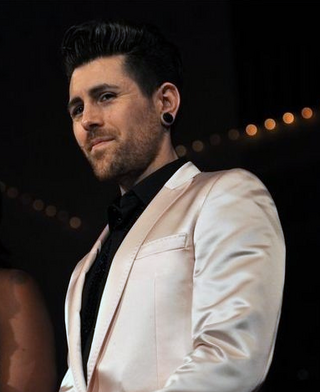
David Paden Marchand, known professionally as Davey Havok, is an American singer and musician who is the lead vocalist of the rock band AFI, the synth-pop band Blaqk Audio, the hardcore punk band XTRMST, and the new wave band Dreamcar. Among various other ventures, he performed lead vocals for Son of Sam's debut album and for fictional band My Purple Agony in the animated series Harvey Girls Forever!.

Hunter Lawrence Burgan is an American multi-instrumentalist. He is the third and current bassist of AFI.
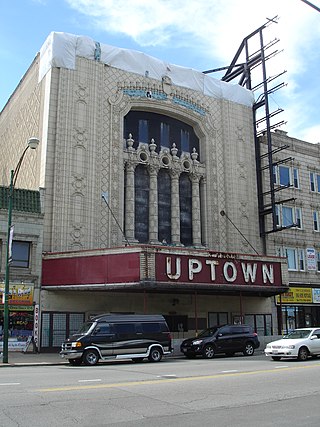
A movie palace is any of the large, elaborately decorated movie theaters built between the 1910s and the 1940s. The late 1920s saw the peak of the movie palace, with hundreds opening every year between 1925 and 1930. With the advent of television, movie attendance dropped, while the rising popularity of large multiplex chains in the 1980s and 1990s signaled the obsolescence of single-screen theaters. Many movie palaces were razed or converted into multiple-screen venues or performing arts centers, though some have undergone restoration and reopened to the public as historic buildings.
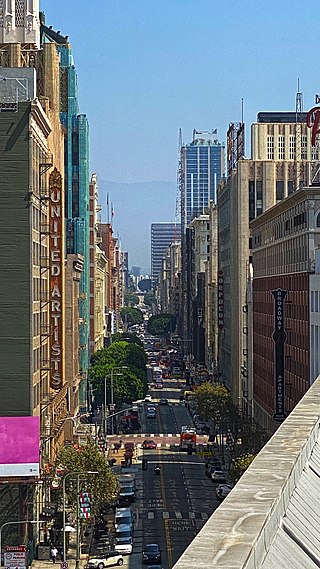
Broadway, until 1890 Fort Street, is a thoroughfare in Los Angeles County, California, United States. The portion of Broadway from 3rd to 9th streets, in the Historic Core of Downtown Los Angeles, was the city's main commercial street from the 1910s until World War II, and is the location of the Broadway Theater and Commercial District, the first and largest historic theater district listed on the National Register of Historic Places (NRHP). With twelve movie palaces located along a six-block stretch of Broadway, it is the only large concentration of movie palaces left in the United States.

Charles Stanton Ogle was an American stage and silent-film actor. He was the first actor to portray Frankenstein's monster in a motion picture in 1910 and played Long John Silver in Treasure Island in 1920.
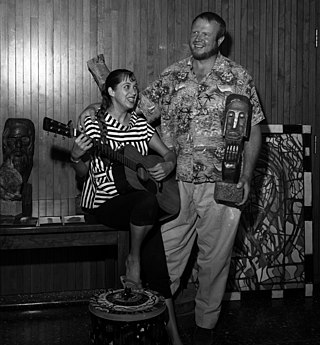
Eric "Big Daddy" Nord (1919–1989) was a Beat Generation coffeehouse and nightclub owner, poet, actor, and hipster. Newspaper columnist Herb Caen called him the "King of the Beatniks." Corpulent, standing 6 feet 7 inches tall, Nord was the face of the Beat generation to San Francisco and Los Angeles newspaper readers in the late 1950s and the founder of the hungry i nightclub.
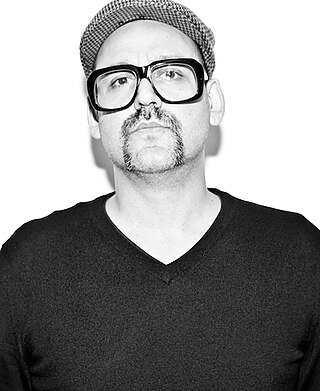
Josh Abraham is an American record producer, songwriter, and music executive. He has worked with artists including P!nk, Thirty Seconds to Mars, Kelly Clarkson, Shakira, Weezer, Linkin Park, Velvet Revolver, Carly Rae Jepsen, Adam Lambert, Alkaline Trio, and Slayer.

Golden Oak Ranch is an 890-acre (360-hectare) movie ranch owned by the Walt Disney Studios subsidiary of The Walt Disney Company that serves as a filming location and backlot. The ranch is off of Placerita Canyon Road outside of Newhall, Santa Clarita, California, less than an hour north of Los Angeles; its entrance is not far from Placerita Canyon Road's intersection with California State Route 14.

"I Love L.A." is a song by Randy Newman. It was originally released on his 1983 album Trouble in Paradise. The song is about Los Angeles, California, and its hook is its title, repeated, each time followed by an enthusiastic crowd cheering, "We love it!"
Alfred Victor Frankenstein was an art and music critic, author, and professional musician.

Carl Stockdale also known as Carlton Stockdale was one of the longest-working Hollywood veteran actors, with a career dating from the early 1910s. He also made the difficult transition from silent films to talkies.
Louis Achille Hirsch, also known as Louis A. Hirsch and Lou Hirsch, was an American composer of songs and musicals in the early 20th century.
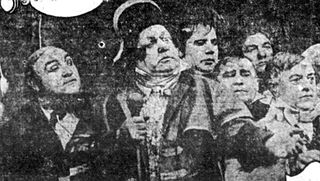
Harry L. Rattenberry was an American actor. He appeared in more than 120 films between 1913 and 1925. He was born in Sacramento, California and died in Los Angeles, California. His parents were William Henry Rattenberry and Mary Ann Broomhead, a former wife of notable Mormon missionary Cyrus H. Wheelock.

The Tik-Tok Man of Oz is a musical play with book and lyrics by L. Frank Baum and music by Louis F. Gottschalk that opened at the Majestic Theatre in Los Angeles, California on March 31, 1913. It is loosely inspired by Baum's book Ozma of Oz (1907), incorporates much of the material from Baum's book The Road to Oz (1909), and was the basis for his 1914 novel, Tik-Tok of Oz. It was promoted as "A Companion Play to The Wizard of Oz" and directed by Frank M. Stammers. The play is known from its advertising and published music, but survives only in earlier manuscript.
Harry David Kerr was an American songwriter, lyricist, author, and lawyer. Kerr became active in music at age 15 (1895). The practice of law had been his prime avocation until 1920, when he decided to focus on songwriting. But he still continued to use his legal training in music. In 1922, while living in New York City, Kerr prepared the incorporation documents for the American Society of Composers, Authors and Publishers (ASCAP), of which he had become one of 90 charter members at its founding in 1914.
The Ukiah Daily Journal is an American daily paid newspaper which serves the city of Ukiah and surrounding Mendocino County, California. Published daily Tuesday through Sunday, its estimated circulation is 6,795.

J. Walter Leopold was an American pianist, songwriter, singer, and comedian from Brooklyn, who entertained audiences in the United States and Canada from the 1910s through the early 1930s. He started his career in vaudeville, and later moved to radio-broadcast performances. In addition to creating new songs for the entertainers he accompanied, Leopold contributed music and lyrics to several published and recorded songs.

Lillian Rosedale Goodman, born Lillian Rosenthal, was an American singer, pianist, vocal teacher, composer, and songwriter.


















